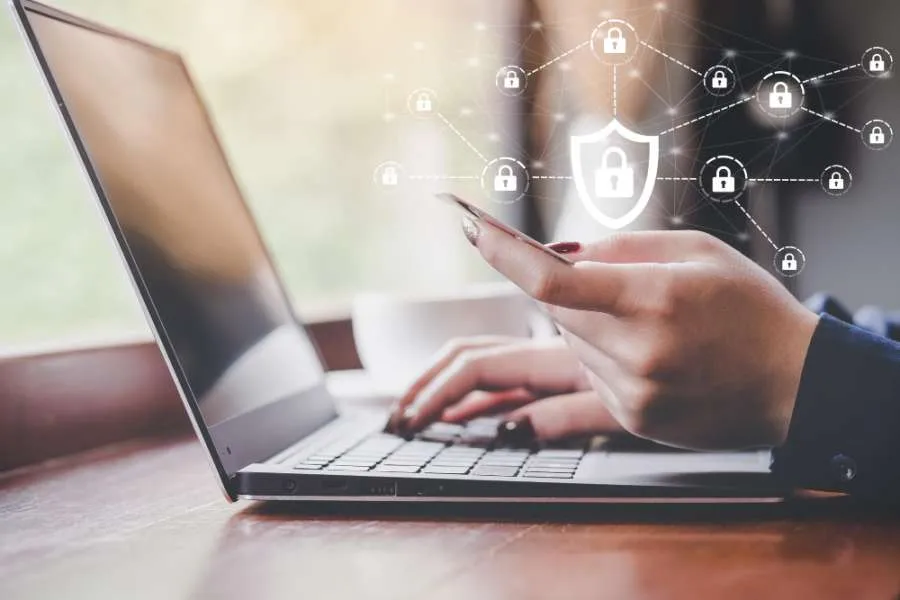Is Your Online Identity Really Safe? What You Should Know
- 06-09-2025
- Business
- collaborative post
- Photo Credit: Freepik
When it comes to online safety, no one is fully immune. Your digital footprint is way bigger than you think. Your online identity is rarely as safe as you think. In this article, we will look at online safety, possible threats, and the way forward.
In the digital world that we live in, online fraud is common. Hackers, data breaches, and careless platform practices can expose your personal info, making it exposed to scams. So, let’s look at how you can find out whether your online identity is safe or not.
What is “Online Identity”?
Online identity, also referred to as digital identity, is the sum total of information an individual leaves on the internet. It includes everything, ranging from social media profiles and browsing history to purchase habits and online interactions.
Here is what your online identity includes:
- Personnel Information
- Online Activities
- Interaction Data
- Digital Assets
- Geographic Information
- Pseudonyms
Common Threats to Your Online Identity
Now that you know what your ‘Online identity’ is, let’s take a look at what can act as a threat to it:
1. Phishing Attacks
This is the most common threat. Scammers attempt to trick you into sharing sensitive information, such as passwords, credit card details, via fake emails, texts, or websites. This is a widely used practice of scammers. According to a report by Statista, over 193,000 individuals fell victim to such attacks in 2024.
2. Data Breaches
Hackers breach your data. They exploit your weak security to steal personal data from companies. There are different ways used by hackers to breach your data.
3. Identity Theft
This is yet another threat to your online identity. Criminals use stolen details such as Social Security numbers and login credentials. These are used to impersonate your access accounts or commit fraud.
In addition to this, Malware, Password Attacks, Social Engineering, Doxxing, Unsecured Wi-Fi, and oversharing on Social Media are some of the threats to your online identity.
How to Safeguard Your Online Identity?
There is no denying the fact that your online identity is at risk of being compromised. The question that follows is what needs to be done to safeguard your online identity? Here is what you must do:
1. Use Strong & Unique Passwords
First and foremost, use strong and unique passwords. You can create complex passwords consisting of 12+ characters, a mix of letters, numbers, symbols, and avoid reuse. You can use a reputable password manager like LastPass or Bitwarden to store them securely. Don’t use passwords that are easily guessable.
2. Enable Two-Factor Authentication (2FA)
Two-factor authentication is an important tool that you can opt for to secure your online data. This adds an extra layer of protection as a code is sent to your phone or app. The 2FA can be added to all your accounts, especially email, banking, and social media.
3. Use a VPN on Public Wi-Fi
VPN is an important tool that can be used to protect your online identity. This is all the more important when using a public network for browsing. So, you can encrypt your connection with a trusted VPN. There are a number of VPNs with different features available. You are at liberty to download a VPN for Chrome to browse safely.
4. Be Cautious with Personal Information
You have to be cautious with your personal information. Refrain from sharing your information. Limit sharing your sensitive details, such as address, phone number, on social media or unsecured sites. Besides, adjust privacy settings to control who sees your post.
5. Educate Yourself
This is the most important step that you have to undertake. You have to keep your eyes and ears open and be vigilant about the happenings. You have to stay informed about the new threats, like deepfake scams or AI-driven phishing. In the age of the internet, there are several different sources available. You can check reliable sources like cybersecurity blogs or government sites.
In addition to the above steps, using encrypted communication, freezing your account, checking financial accounts regularly, securing your devices, and monitoring your data breaches are some other important steps you must take to safeguard your online identity.
Digital Privacy: What Lies Ahead!
The future of digital privacy is at a crossroads as technology evolves faster than regulations. Certain emerging tools like end-to-end encryption, decentralised platforms, and AI-driven security promise stronger protections for personal data. However, growing threats such as sophisticated cyberattacks, AI-powered surveillance, and mass data collection by corporations and governments challenge individual control over online identities.
The need of the hour is to have a stricter global privacy law. Since AI has taken over most things, including tourism, which has now become AI-powered Tourism, the laws, like GDPR expansions or new frameworks, may empower users. It will, to a large extent, protect the online identity of the users.
Conclusion
So, it has come to the fore that online identity is not as safe as you may think. There are a number of threats that infringe on and breach your online identity. Your data is not as secure as you may think. Having said that, there are certain preventive measures that you can take to protect your online identity. In this article, I have dealt with the question of is your online identity is really safe. You can go through the article to know more about it.



























































